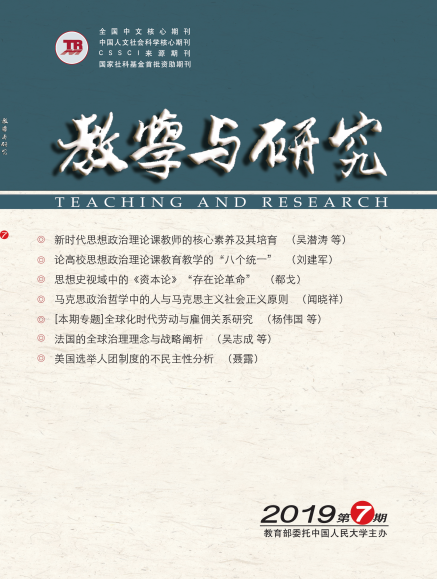|
|
An Analysis on the Undemocratic Electoral College System of the United States
Nie Lu
2019, 53 (7):
95-102.
DOI:
The article analyzes how and why the electoral college system of US. presidential election is undemocratic, based on a holistic analysis framework of electoral systems, which includes rules itself, political production and social views. First, the electoral rules are essentially a mixed production instead of a democratic article. They were created with compromises through the Constitutional Convention. Soon a new partial alternative, Simple Majority Rule was spread among states. This is also comparatively undemocratic. In the meantime, although it keeps on degrading democratic quality, the procedures of dysfunctional electors remain unchanged. Second, in the means of political production, vote value and the problem of swing states implies the lack of electoral equality. Furthermore, those elected presidents with relative fewer ballots show that those electoral outcomes were short of legitimacy and representation. Another political production exists in the negative participation of voters. Third, the constant debate on system reform reflects the social views. The proposal of reform was nearly passed in three times as an act in the congress. Supporters from the congress, academic and public fields, demand a more democratic electoral system, while their opponent emphasizes constitutional traditions.
Related Articles |
Metrics
|



